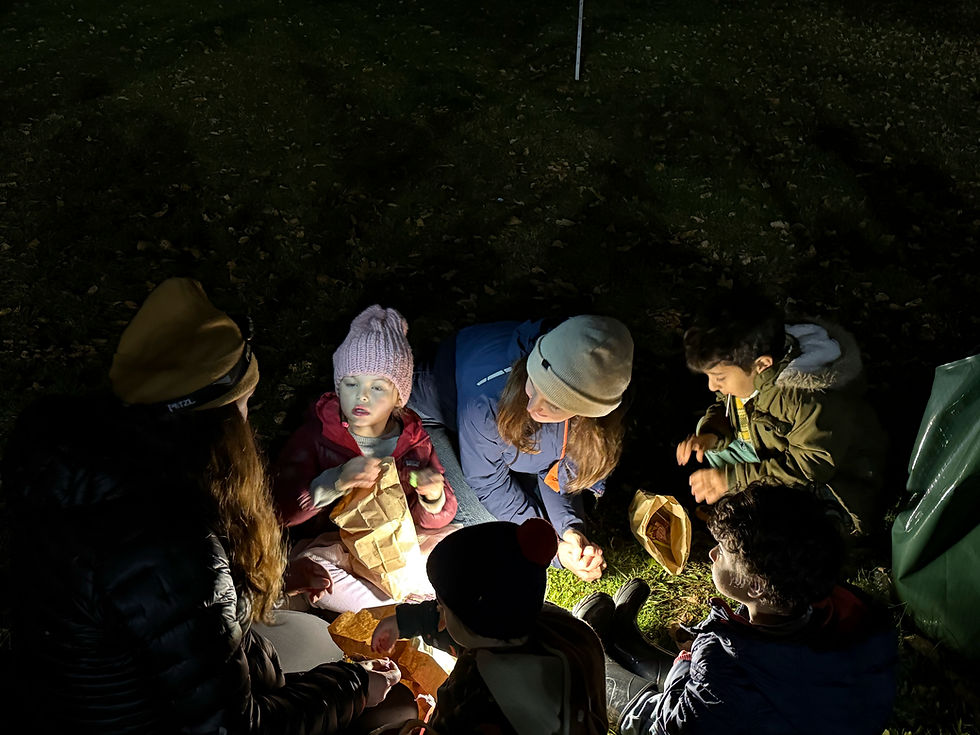Why Orienteer?
- Barb Bryant
- Nov 28, 2016
- 4 min read
By Ethan Childs
Throughout the future of Navigation Games, there will likely be multiple articles which share this title. Why? Because there are so many reasons to orienteer! But right now there's one reason that stands out above all others: learning to deal with difficult, unfamiliar, and scary situations.
Don't be alarmed! Orienteering is actually a very safe sport, and even if you do get hopelessly lost, there is an entire group of people who are really good at finding things who will come help. In fact, it is probably one of the safer ways to learn how to deal with challenging situations.
To give you a better idea of what I'm talking about, try imagining yourself at a difficult time in your life. As a recent college-graduate I might think about final exams, huge projects, and a thesis that I must complete within the next week. It might also be a tough breakup with your soul-mate, a mid-life crisis, teenage crisis, or even losing your favorite shirt. In some way, we have all experienced a situation where we felt overwhelmed, lost, desperate, and scared. It was not a fun time, being completely lost in the forest is just one more example. I have spent hours in the woods; alone, cold, tired, hungry and/or thirsty, and with absolutely no idea where I was. I am very familiar with these sorts of situations.
But the times when I was completely lost are some of the most important and educational experiences I have had in my entire life. It is through these moments that I learned exactly how to deal with situations and scenarios that seem so difficult—impossible, even—that my mind and body were ready to shut down.
So why orienteer? Because orienteering gives us a chance to work through some of the scariest moments in our lives. And no matter what the situation, the process to get through it is always the same:
Take a few deep breaths or whatever it takes to calm down
Consider everything you know
Come up with a simple plan
Proceed one step at a time
When I am lost, the greatest challenge is admitting that I did something wrong. It can be so tempting to pretend I haven't actually made a mistake, or that I am not far from where I thought, but such a mindset causes much more harm than good. Learning to accept a mistake, and flushing out all the clutter in my head, is the fastest way to get back on track.
Once I own my errors, it is much easier to look around and think about how I arrived in my present predicament. Where have I been? Where did I go wrong? What do I see? Taking stock of everything around me—the facts of the situation, if you will—and considering the moments leading up to the present is the best way to figure out the reality of where I am and how I got there. Without first knowing where I am, I cannot possibly hope to find whatever I'm looking for.
Everything gets much simpler at this point. But you're not out of the woods until you're out of the woods. I got lost once already, and it can happen again just as easily without a solid plan moving forward. While rushing ahead and trying to make up for lost time is a tempting and natural response, it is also the surest way to make an even larger mistake. In order to get back on track, I need a simple plan; one I can easily break down into manageable pieces and execute with confidence.
The only thing left is to keep calm and forge ahead. If I know where I am, have a solid plan, and keep a level head, then it won't be long before I'm back on track. The key is making sure I maintain all of these traits along the way. If I throw out my plan, stop paying attention, or simply lose track of where I am, then it's back to square zero. Every new mistake will make it harder and harder to refocus and get back on track, so it's better to take a few extra seconds and get it right the first time.
While all of this may seem a bit hokey, the reality is that orienteering really does teach these qualities. There is so much more to the sport than a metaphor about "finding your way" or "navigating life." Orienteering is real experience with difficult situations. It is first-person exposure to a problem, and the only one to solve it is yourself. It requires just as much patience and focus as it does hard work. Orienteering is being prepared for the future, even if things go wrong along the way.
So if running around in the woods, fitness, adventure, and having a fun isn't already enough reason to orienteer, remember that there is so much you can learn from the sport. It will help you become a stronger person than ever before. All you need is to get out, give it a shot, and be prepared for a few hiccups along the way.




Comments